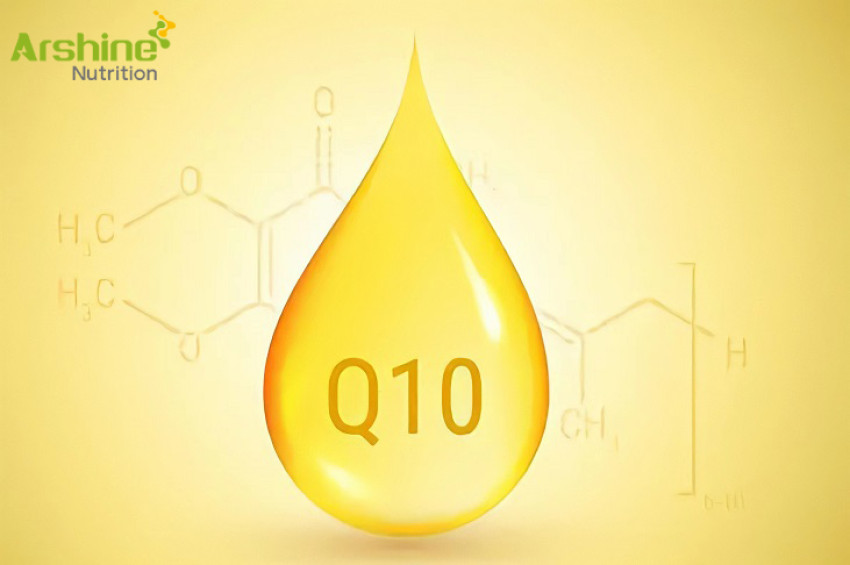
Coenzyme Q10 (CoQ10) is a naturally occurring compound that is essential for the proper functioning of cells in the human body. It plays a crucial role in energy production and acts as a powerful antioxidant. CoQ10 is often referred to as a "ubiquitous" compound because it is found in nearly every cell and tissue, highlighting its vital role in maintaining overall health. In this article, we will delve into the nutritional value of CoQ10, exploring its functions, dietary sources, potential benefits, and supplementation considerations.
CoQ10 is primarily known for its role in cellular energy production. It is a key component of the electron transport chain, which is involved in generating adenosine triphosphate (ATP), the molecule responsible for storing and releasing energy within cells. CoQ10 facilitates the transfer of electrons, allowing the production of ATP. This energy is required for various physiological processes, including muscle contraction, nerve signaling, and metabolic functions. Adequate levels of CoQ10 are essential for maintaining optimal energy levels and supporting overall cellular health.
In addition to its energy-producing function, CoQ10 is a potent antioxidant. It helps protect cells from oxidative damage caused by free radicals, unstable molecules that can lead to cell dysfunction and contribute to aging and disease development. CoQ10 works in both its reduced (ubiquinol) and oxidized (ubiquinone) forms to neutralize free radicals and prevent oxidative stress. By reducing oxidative damage, CoQ10 supports the health and integrity of cells, tissues, and organs throughout the body.
While the body can synthesize CoQ10, it can also be obtained through dietary sources. CoQ10-rich foods include organ meats such as liver and heart, fatty fish like salmon and sardines, poultry, soybean oil, nuts, and seeds. However, the amount of CoQ10 in these foods is relatively low, and it can be challenging to obtain sufficient levels through diet alone. Moreover, CoQ10 levels in the body tend to decline with age, making supplementation an option for individuals with insufficient dietary intake or increased needs.
Supplementing with CoQ10 has gained popularity due to its potential health benefits. Research suggests that CoQ10 may support cardiovascular health. It has been shown to help maintain normal blood pressure levels and improve heart function in individuals with certain cardiovascular conditions. CoQ10's antioxidant properties also contribute to its cardioprotective effects by reducing oxidative stress and inflammation, which are key factors in the development of heart disease.
Furthermore, CoQ10 has been investigated for its potential role in managing migraines. Studies have shown that supplementation with CoQ10 can reduce the frequency and severity of migraine attacks. CoQ10's ability to improve mitochondrial function and reduce oxidative stress in brain cells may contribute to its therapeutic effects in migraine management.
CoQ10 has also been studied in relation to its impact on fertility and reproductive health. Research suggests that CoQ10 supplementation may improve sperm quality and motility in men, potentially enhancing fertility outcomes. In women, CoQ10 has been investigated for its potential to support ovarian health and egg quality. Although further research is needed to establish the precise mechanisms and effectiveness, CoQ10 shows promise in the field of reproductive medicine.
Moreover, CoQ10 has been explored for its potential benefits in neurodegenerative diseases such as Parkinson's disease and Alzheimer's disease. CoQ10's antioxidant properties and its role in energy production may help protect brain cells from oxidative damage and support overall brain health. While more research is needed to determine the optimal dosage and long-term effects, preliminary studies suggest that CoQ10 supplementation may have a positive impact on neurological function.
When considering CoQ10 supplementation, it is important to consult with a healthcare professional. They can help determine the appropriate dosage and assess any potential interactions with medications or existing health conditions. CoQ10 supplements are available in different forms, including ubiquinone and ubiquinol. Ubiquinol is the reduced form of CoQ10 and is considered more bioavailable, meaning it is easier for the body to absorb and utilize.
In conclusion, Coenzyme Q10 is a vital compound that supports cellular energy production and acts as a potent antioxidant. It can be obtained through dietary sources, although supplementation may be necessary to meet increased demands or address deficiencies. CoQ10 supplementation has shown potential benefits for cardiovascular health, migraine management, fertility, and neurodegenerative diseases. However, further research is needed to establish the precise mechanisms of action and therapeutic applications of CoQ10. As with any supplementation, it is advisable to consult with a healthcare professional before starting CoQ10 supplementation.
https://www.arshinenutra.com/detail/industry/value_of_coenzyme_Q10.html



